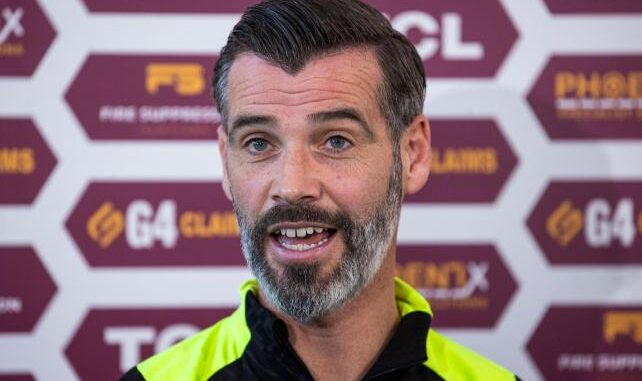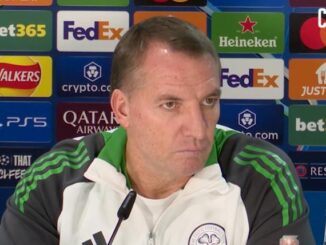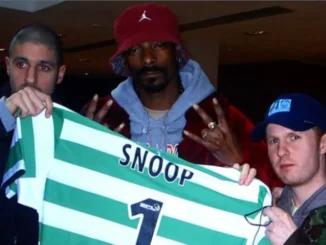
Start with a recap of the recent match, focusing on the red card incident that sparked debate. Include Stuart Kettlewell’s initial reaction and the context behind the decision.
2. Breakdown of the Incident
Detail the specific play that led to the red card. Describe the tackle or action in question, what the referee saw, and how it aligns with league rules. Analyze the perspectives from both Celtic fans and officials.
3. Kettlewell’s Perspective
Summarize Kettlewell’s defense of the decision, mentioning any statements he made in response to criticism. Discuss why he believes the call was appropriate and fair.
4. Historical Context and Refereeing Standards
Provide context on refereeing standards in Scottish football, especially with Celtic. Compare this decision with similar past incidents to show if there’s consistency or bias.
5. Fans’ and Analysts’ Reactions
Outline social media responses from fans and analysis from sports pundits. Mention contrasting opinions and what analysts believe the call’s impact could be for Celtic’s season.
6. Conclusion: What’s Next for Celtic and Refereeing?
Wrap up by examining how this incident might affect Celtic’s approach in upcoming games and the potential impact on refereeing policies.
Let me know if you’d like to go ahead with this approach or add specific details!
You said:
ChatGPT said:
Stuart Kettlewell Responds to Controversial Celtic Red Card Claim: Fair or Too Harsh?
Meta Description:
Stuart Kettlewell addresses Celtic’s controversial red card incident, defending the referee’s decision amidst fans’ criticism. Is it justified or overly harsh?
Tags:
Celtic FC, Stuart Kettlewell, Red Card Controversy, Scottish Football, Referee Decisions
1. Introduction
In a thrilling match that showcased the competitive spirit of Scottish football, a contentious red card decision involving Celtic has sparked a heated debate among fans and pundits alike. Stuart Kettlewell, the manager of the opposing team, stepped into the spotlight, offering his insights into the incident. As emotions ran high, he emphasized the importance of understanding the referee’s perspective, igniting discussions about fairness and the integrity of officiating in the sport.
2. Breakdown of the Incident
The incident in question occurred during a crucial moment of the match. A tackle from a Celtic player led to a quick whistle from the referee, who deemed the challenge worthy of a straight red card. In this section, we’ll analyze the particulars of the tackle, the positioning of players, and how the rules of the game were applied. The decision left many wondering whether the referee acted within the boundaries of the game’s laws or overstepped in punishing what some viewed as a minor infraction.
3. Kettlewell’s Perspective
Following the match, Kettlewell made it clear that he supported the referee’s decision, stating that safety must come first on the pitch. “Referees are tasked with making difficult calls in real time,” Kettlewell said. His comments reflect a broader understanding of the pressures faced by officials and the challenging nature of the sport. He urged fans to consider the nuances involved in such decisions and the potential consequences of reckless play.
4. Historical Context and Refereeing Standards
Scottish football has a storied history of contentious refereeing decisions, particularly involving Celtic, one of the league’s most prominent clubs. This section will delve into past incidents and controversies that have shaped perceptions of officiating in the league. By comparing Kettlewell’s comments to historical data, we can evaluate whether this red card was an anomaly or part of a recurring theme in Scottish football.
5. Fans’ and Analysts’ Reactions
As news of the red card spread, reactions flooded social media, with fans divided over the decision’s legitimacy. Some expressed outrage, claiming the punishment was disproportionate to the offense, while others echoed Kettlewell’s sentiment, arguing that player safety must always take precedence. Sports analysts weighed in, providing insights on how such decisions can influence not only the game’s outcome but also the season’s trajectory for both teams.
6. Conclusion: What’s Next for Celtic and Refereeing?
Looking ahead, this incident may prompt discussions about refining refereeing standards and training. Kettlewell’s call for understanding from fans could help foster a more respectful dialogue around officiating in football. As Celtic continues its season, the ramifications of this controversial call could resonate beyond the pitch, influencing both team dynamics and fan expectations.
This article serves as a platform to explore the complexities surrounding red card incidents in football, encouraging readers to engage thoughtfully with the issues at hand. By analyzing the perspectives of managers, players, and fans, we gain a comprehensive understanding of the intricate relationship between officiating and the game.



Be the first to comment